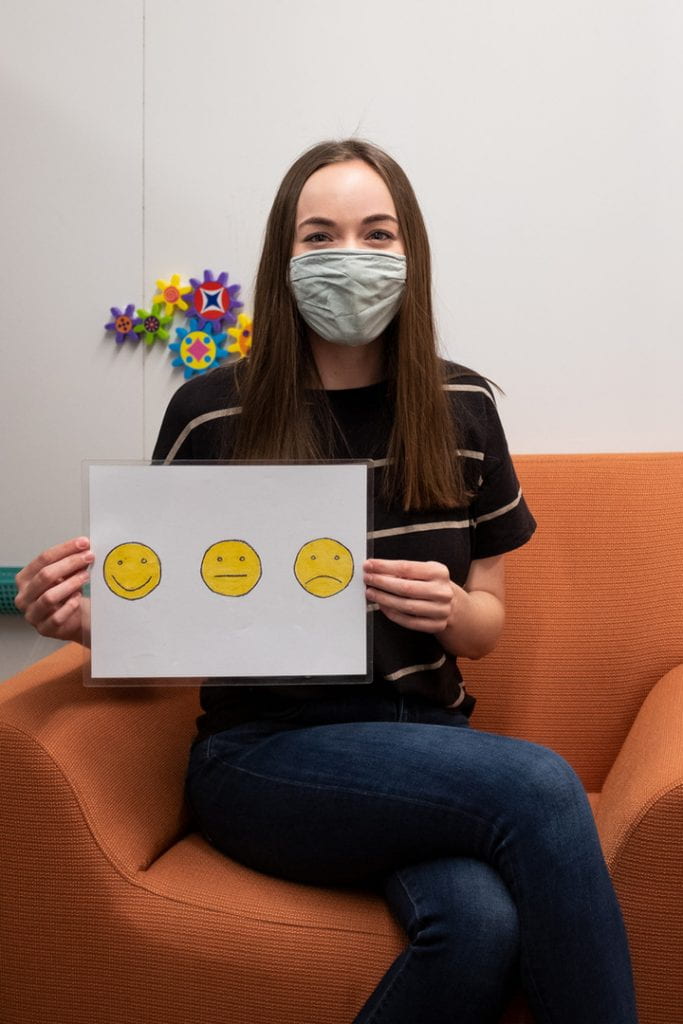
The following was adapted from an email interview between Sarah Lapean and Heather Scott.
Tell us a bit about yourself. What life experiences influenced you to write a senior thesis?
I am a psychology and English double major from a small town in central Illinois. I came to Amherst knowing that I was interested in psychology and working with children, but I wasn’t sure whether I would like to pursue research until I started working as an RA in the Child Learning and Development lab my junior year. Then, when the opportunity to write a thesis on developmental psychology with Professor Palmquist came out of working in the CLAD lab, I knew I wanted to do so!
Can you please talk about the research you’re doing for your senior thesis?
I was originally planning to collect my own data during the summer of 2020, which would have built on prior studies which I had helped with as an RA. But when the pandemic hit, I had to change course. I ended up analyzing a past dataset of over 300 children’s performances on a theory of mind task. Theory of mind describes the ability to understand how different people can have different desires, knowledge, beliefs, and emotions, and how they will behave differently as a result. Children gradually acquire this skill between the ages of three and five.
What does the schedule of a thesis student look like?
I found that my schedule could vary a lot depending on what phase of the thesis-writing process I was in. While I was working on data analysis, I spent much more time in the lab pulling out old binders full of data sheets, which included the theory of mind task from previous studies that had been conducted in the CLAD lab. While I was primarily in the writing phase, I spent much less time in the lab, and found that mixing up my location could help keep me focused. But, the basement of the science center definitely became my go-to spot when I really needed to get things done!
In what ways does your research play into the “bigger picture” that you find meaningful?
Because I was working with past data, my own findings were more descriptive in nature, and were focused on tracking sex and age differences in theory of mind across the preschool years. But, because theory of mind is a skill which can have a significant and long-term impact on social and emotional health, I think working to understand how every child develops their own theory of mind is still really important.
What advice do you have for students interested in writing a thesis?
My main advice would be that if you want to write a thesis, you should! It can feel like a big undertaking, but it doesn’t need to happen all at once. Especially if you are able to write about a topic that really excites you, then the payoff will be well worth it!

You must be logged in to post a comment.